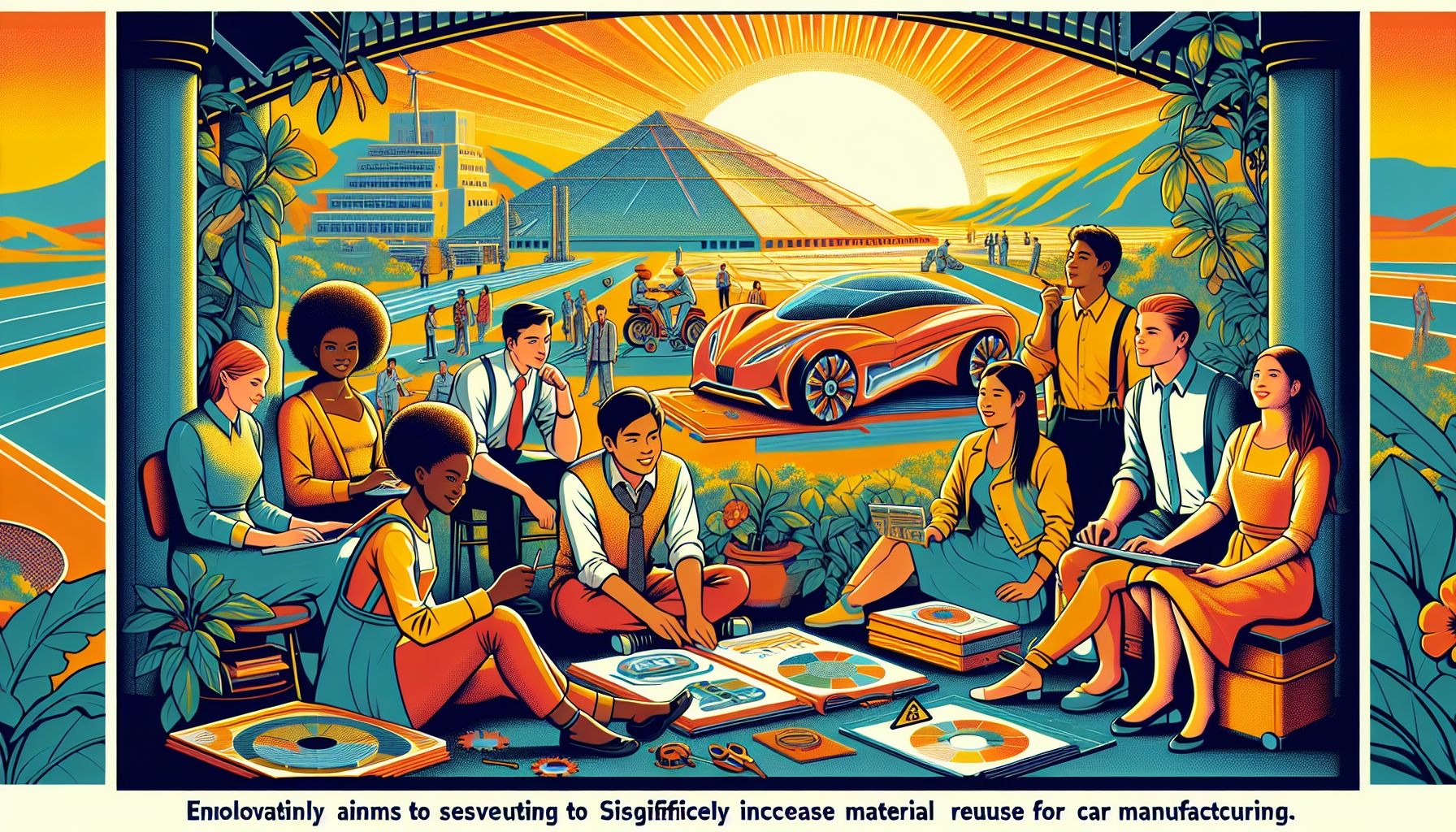TU Eindhoven Students Revolutionize Car Recycling with 'Phoenix' Prototype

Eindhoven, Friday, 11 October 2024.
A student team from TU Eindhoven has developed ‘Phoenix,’ an innovative car prototype designed to quadruple material reuse in automotive manufacturing. This groundbreaking project aims to set new sustainability standards ahead of impending EU regulations, addressing the critical need for improved recycling processes in the auto industry.
Pioneering Sustainable Auto Design
The student team, known as TU/ecomotive, based in Eindhoven, Netherlands, is spearheading a remarkable shift in car manufacturing with their Phoenix prototype. By focusing on closed-loop recycling, the team ensures that materials are reused without degradation, setting a benchmark in sustainable design. Unlike traditional downcycling, which diminishes material quality, Phoenix maintains the integrity of materials, readying them for future use in automotive production[1].
Innovative Features for a Greener Future
Phoenix incorporates mono-material structures and intelligent attachment systems, enhancing recycling efficiency and preserving high-quality materials. This innovative approach allows for the reuse of up to four times more materials than standard practices, significantly reducing automotive waste. Furthermore, the design includes both fixed and removable batteries, which extend the vehicle’s range by over 60% and provide additional utility by enabling battery usage at home[1].
Aligning with New EU Regulations
The project emerges at a critical juncture as the European Commission introduces regulations mandating that vehicles contain at least 25% recycled plastic, with a minimum of 6.25% being closed-loop recycled from cars. Tim van Grinsven, team manager of TU/ecomotive, emphasizes the necessity for more comprehensive measures, stating, ‘The European Commission is heading in the right direction, but more is needed to truly transform the industry.’ This sentiment underscores the importance of Phoenix in pioneering more sustainable automotive practices[1].
The Broader Impact on the Automotive Industry
The TU Eindhoven initiative is part of a broader movement towards sustainability within the automotive sector. Companies like Covestro are also contributing by developing sustainable materials integral to a circular economy, further promoting eco-friendly manufacturing processes. These efforts are aligned with the European Union’s goals to reduce carbon emissions and dependency on virgin materials, showcasing a collective commitment to a more sustainable future in automotive production[4].
Conclusion: A Step Towards Sustainable Mobility
As the automotive industry faces increasing pressure to adopt sustainable practices, projects like Phoenix offer a glimpse into a future where cars are not only vehicles but also ambassadors of environmental responsibility. By prioritizing material efficiency and recycling innovations, TU/ecomotive sets a precedent for others in the industry, encouraging manufacturers worldwide to integrate sustainability into their core operations. The Phoenix project not only meets current regulatory demands but also inspires a vision of sustainable mobility that is both achievable and essential[1].

